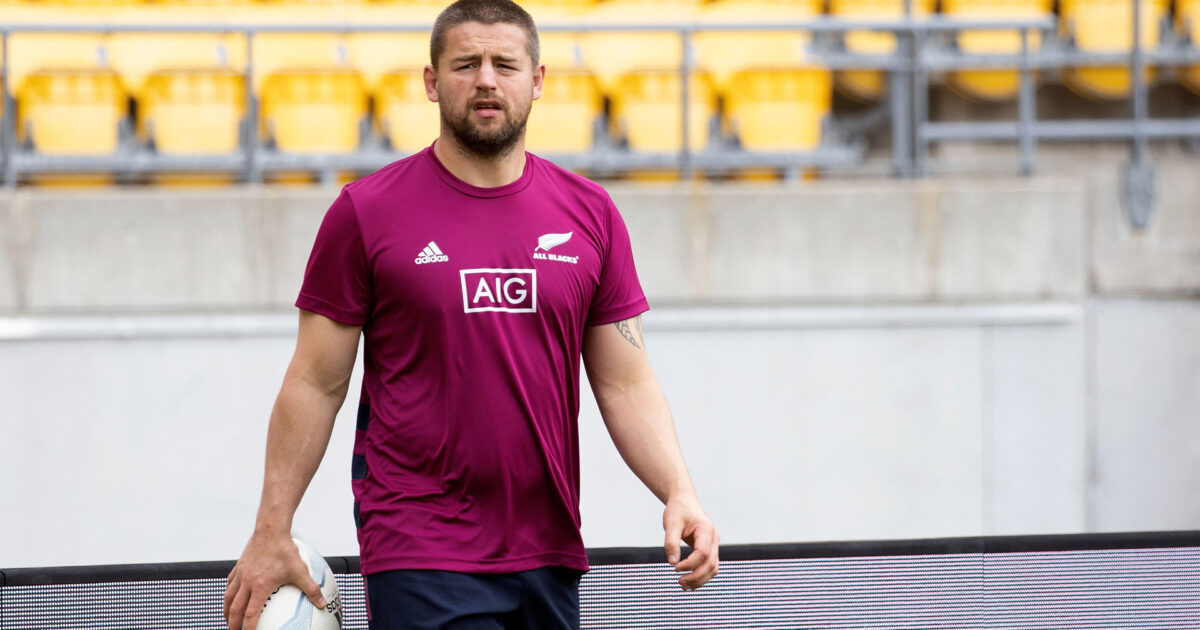Harsh lessons from All Blacks review: 'They've got guys smashing us at the ruck and us parking up having a holiday'

A typically honest review has laid bare the fixable flaws the All Blacks must swiftly resolve before confronting the Wallabies for the second Bledisloe at Eden Park. No surprises the onus has been put squarely on the forward pack to respond from their smack on the nose.
The first test of the year was supposed to reveal the All Blacks pack setting a new, improved platform after being steamrolled by the physically dominant English forwards in the World Cup semifinal defeat.
The big men involved in that defeat should still be hurting.
Instead, the dramatic 16-all draw in Wellington unearthed the same lingering, issue. The All Blacks pack was passive in much of their core duties – leading to accusations of a soft underbelly from some quarters.
With the lack of ball they did receive there were few dominant carries bending or buckling the Wallabies line, while on defence the hunger to knock over green and gold runners wasn’t evident across the board, either.
While the scrum and lineout operated well, Dave Rennie’s blueprint of targeting the breakdown worked a treat to disrupt the All Blacks ruck ball.
With presentation and protection sloppy, Aaron Smith struggled to whip his usually crisp pass which left Richie Mo’unga under pressure and the All Blacks backline largely on the backfoot.
“When you see clips with their intent – they’ve got guys smashing us at the ruck and us parking up having a holiday that’s personal pride stuff,” All Blacks hooker Dane Coles said bluntly after arriving from the team review session.
“At international level, that’s your bread and butter. We need to raise the intensity in that area and be better.
“It’s frustrating we didn’t bring that. It’s a big part of the game. The beauty of rugby is you get a chance to fix that and put it right.
“It’s been made a focus point so it’s up to us as individuals to find what it takes to bring that out on Sunday. There’s no real recipe or secret word, everyone will have to go to that place so that comes out in the game.
“When you’re coming off a performance like that, regardless of where we’re playing, we need a response. There’s plenty of motivation to work hard and get better for Sunday.”
While much has been made of Rieko Ioane's infamous dropped ball over the tryline on Sunday, there is a key reason to retain him in the All Blacks side this weekend. #BledisloeCup #NZLvAUS https://t.co/vO6lEI9Jxr
— RugbyPass (@RugbyPass) October 13, 2020
The most frustrating part of the flat All Blacks’ performance is they knew Rennie would bring tactics to fly into the breakdown and take players out off the ball, as he did to other Super Rugby teams when leading the Chiefs from 2012-17.
And, yet, the All Blacks still did not front physically as required.
“Yeah definitely, that’s Chiefs,” Coles observed. “You could see he’s been in their ear pumping them up like he used to Sam Cane and [Tawera] Kerr-Barlow. He’s got a good understanding of how to create chaos at the ruck. We’ve seen that before with the teams he’s coached in New Zealand. He’s definitely making his mark felt.”
At this level the All Blacks should not need a reminder to get their mental approach to dominating the breakdown right. Like an uppercut landing flush on the chin, there’s now no excuse not to put those lessons into action.
“If you don’t show up with the right intent mentally it’s going to be a long day,” Smith said. “We were aware of the things Rens brings to his teams around breakdown, physicality and their mindset. We didn’t bring the All Blacks level of intent. There’s some pretty simple messages there we can all fix.
“It’s something we know now. We’ve had our smack on the nose and it’s up to us to respond.”










































































